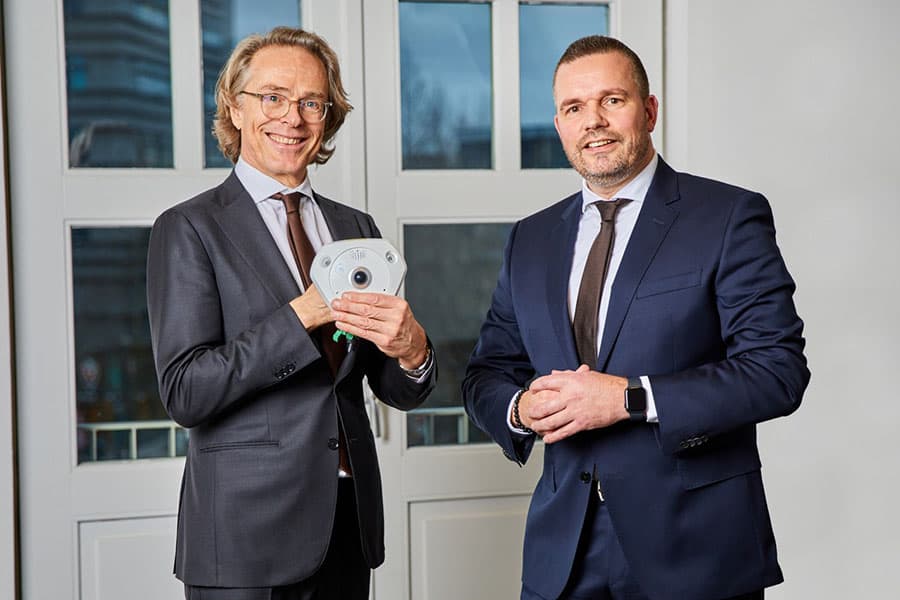Non-invasive smart sensors launch for care providers to better monitor elderly patients

Specialist in vision-based human activity recognition software Kepler Vision Technologies has announced the launch of its new range of non-intrusive Kepler Vision Smart Sensors.
Developed in partnership with video security systems provider Hikvision to process Kepler Vision’s Night Nurse (KNN) software, Kepler Vision Smart Sensors enable care providers to better monitor the wellbeing of elderly patients in care home environments.
Integrated with the computer vision-powered Kepler Night Nurse software, the sensor and software solution transform a monitored video feed into text to alert staff when they are needed. For example, a video feed showing an elderly resident fallen on the floor is indicated by the message “In room 13 a client has fallen who needs help”, delivered to a nurse through the nurse call system.
The video feed itself does not need to be sent or viewed by the nurse, ensuring privacy for the client and removing the need for constant camera monitoring.
Through the use of deep learning and computer vision, KNN’s video monitoring system is able to detect when elderly patients fall, when they are in physical distress, and when dementia patients wander into areas that are not supposed to, automatically alerting staff when these patients need assistance. Replacing old sensor systems such as bed mats, motion sensors and wearables like necklaces and bracelets, the software allows staff to immediately respond to patients and eliminates 99 percent of false alarms.
Two versions of the Kepler Vision Smart Sensor are available for use in care homes. A 6MP camera for private rooms, and a 12MP version for monitoring common rooms and hallways.
These new devices reduce the calibration period for the Kepler Night Nurse solution and reduce the set-up cost for the system as a whole. While the quality of the Kepler Vision Smart Sensor ensures the “highest level” of operability for Kepler Vision’s monitoring, according to the girm, the KNN solution will still work with any existing camera systems already in use by care facilities.
Dr. Harro Stokman, CEO of Kepler Vision Technologies, said: “We are very excited about the increased efficiency and accuracy that the new Kepler Vision Smart Sensor brings to care staff looking after the wellbeing elderly patients.
“The combination of the Kepler Night Nurse solution with these sensors eliminates the need for pilot tests for the system in care environments, significantly reduces the set-up cost of the whole monitoring solution and maximises both the reliability and accuracy of our cutting-edge computer vision solution. Given the current state of the care home industry, we are proud to be offering something that reduces the strain on care staff by allowing them to more effectively administer care, without sacrificing the privacy of patients.”
The launch of the Kepler Vision Smart Sensor is an important component of Kepler Vision’s full stack solution. This consists of the computing hardware found in the Kepler Edge Appliance, the Kepler Vision Smart Sensor, and the software itself in the form of the Kepler Night Nurse, which is being constantly refined to add greater functionality for care facilities.
Kepler Vision’s Night Nurse solution is the world’s first computer vision-based fall detector to be awarded medical device status. Its computer vision-powered software officially registered as a medical device in compliance with the European council directive 93/42/EEC. The registration signifies that the software has been tested both internally and in the field to meet the highest specifications and that risk assessments and mitigating measures have been met.
Research from Kepler Vision Technologies last year showed that while people were still concerned about the possibility of elderly relatives catching COVID, day-to-day concerns such as loneliness, mental health and falling over were of almost equal concern.
The findings indicated that assistive technology could be useful in helping over-75s remain safe and independent, including fall detection solutions, mobility aids and technology-enabled care (TEC) devices.

